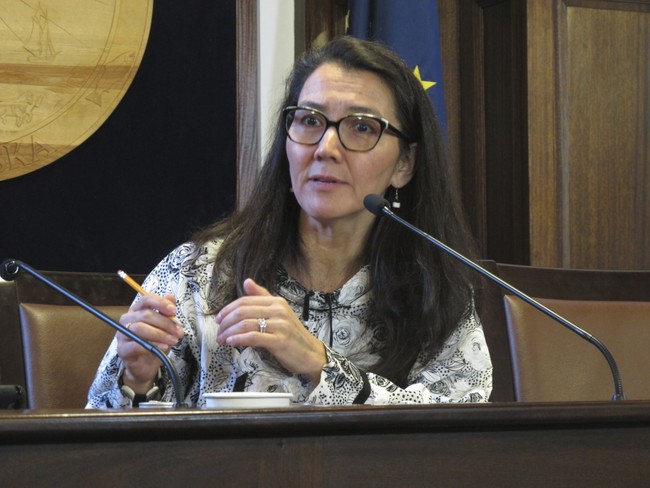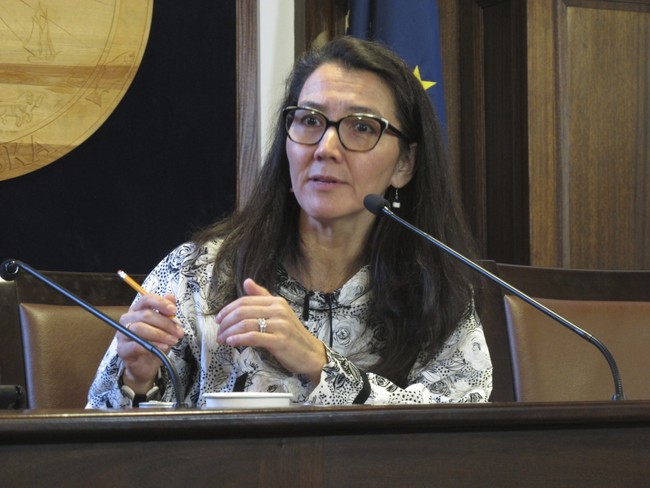From PJMedia.com

Alaska Republicans are looking to flip a Democratic House seat which would give them some breathing room in the race to keep the House in GOP hands.
Alaska Lt. Gov. Nancy Dahlstrom, one of three top contenders for the seat, announced on Friday that she was suspending her campaign.
Advertisement
“I entered this race because Alaskans deserve better representation than what we have received from Mary Peltola in Washington,” Dahlstrom said in a statement.
“At this time, the best thing I can do to see that goal realized is to withdraw my name from the general election ballot and end my campaign,” she said.
Peltola won in 2022 because Alaska uses a “ranked choice” system of voting. Two Republicans split the conservative vote giving Peltola a chance to win.
The same scenario was developing in 2024. Dahlstom and Nick Begich were running against the incumbent Peltola until the Lt. governor dropped out. Now it is a Republican against a Democrat where the candidate who receives more than 50% is the winner.
Jazz Shaw at Hot Air:
This seat in Alaska could turn out to be critically important to the GOP. The Republicans’ hold on the majority in the House remains slender at this point. If a red wave fails to crest yet again this fall the same way that it did in the midterms, they will need every seat that they can sink their claws into. The Cook Political Report still rates Alaska as R+9. They only have one at-large House seat representing the entire state, so there is no way that the Democrats should have been able to put Peltola into office.
Advertisement
He continues:
They probably wouldn’t have been able to do it if Alaska hadn’t lost its mind in 2020 and adopted ranked-choice voting. Proponents claim that the system gives voters the opportunity to put more moderate and independent voices into office. That is, of course, a load of malarkey. You’ll notice that you won’t be seeing any moderates or independents moving on to the final ballot in this House race. All ranked-choice voting has done is force the major parties to get more creative in how they fight their battles. It didn’t have any impact on the presidential primary either. Donald Trump once again walked away with all of the state’s delegates.
Yes, there’s a way for a party to game ranked choice voting, making the claim it weakens partisanship a lie. Since only the top four contenders move on to the general election, liberal PACs poured money into independent advertising for the three Republican candidates, hoping to raise their name recognition and profile. The thinking was that splitting the conservative vote would once again prevent a Republican from winning 50% and the race outright.
Advertisement
Republicans, including Kelly Tshibaka, who lost to Sen. Lisa Murkowski, R-Alaska, in a ranked-choice battle, have condemned the system as “baiting the water for [political] negativity.” However, other proponents have said it helps suppress partisanship and aids more moderate candidates.
Currently, the GOP has a 220-211 advantage in the House with four vacancies. Every seat is vital, especially a seat in a red state that can be flipped.
Taking the at-large Alaska seat would be a huge boost to GOP efforts to keep the House.
All articles possibly rephrased by InfoArmed.com
